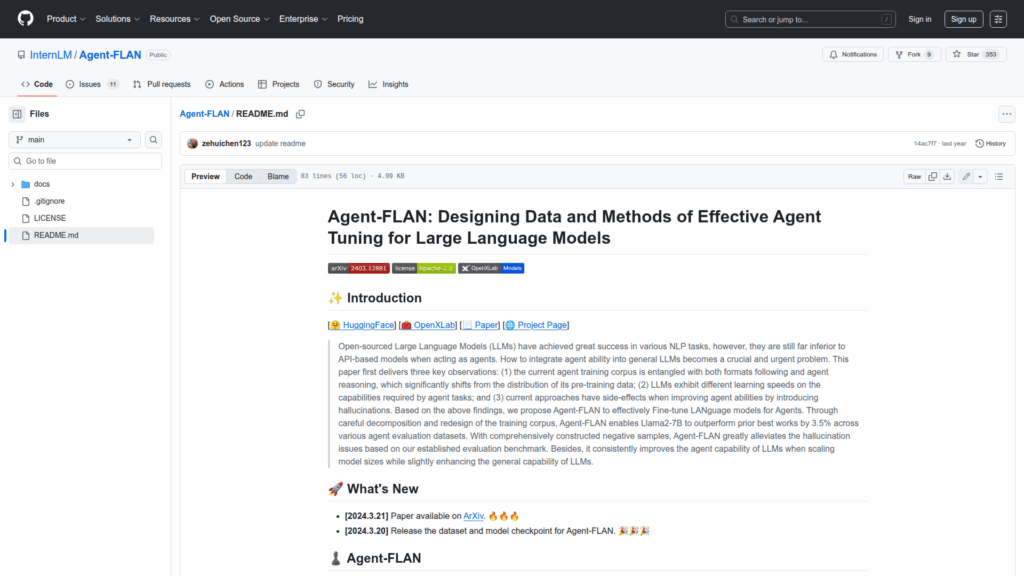Agent-FLAN
Basic Information
This repository accompanies the Agent-FLAN research project and provides data, model checkpoints, and methods for fine-tuning large language models to act as agents. It documents key observations about agent training data and learning dynamics, and presents a data generation pipeline and training protocol designed to improve agent reasoning, tool use, and format following while reducing hallucinations. The repo releases the Agent-FLAN dataset and a finetuned Agent-FLAN-7B model that follow the Llama2-chat conversation format. It also links to the paper, model and dataset hubs, and reports comparative evaluations on held-in and held-out agent tasks. The scope is research and reproducible development for improving LLM agent capabilities rather than an end-user chatbot product.








